OCR GCSE Computer Science (Oxford Revise: Computer Science)
£10.40
Get the support you need to revise for the exam, including topics like binary numbers, and programming languages.
By working through the Knowledge – Retrieval – Practice sections, you will be using proven ways to revise, check and recall so that what you revise sticks in your memory.
Knowledge Organisers cover the key information that you need to revise in manageable chunks and help you to make connections with what you already know. Concepts are illustrated in meaningful ways with helpful worked examples throughout. An online glossary helps you to learn the definitions to key terms.
Retrieval questions empower you to check that you have retained the knowledge before you move onto the exam practice. Regularly going back and retrieving prior knowledge helps you combat the forgetting curve.
Exam-style Practice gives you lots of opportunities to practise the type of questions you will encounter in your exams with useful tips and guidance.
As you use this revision and practice guide, you will be securing your knowledge and building up your confidence.
Read more


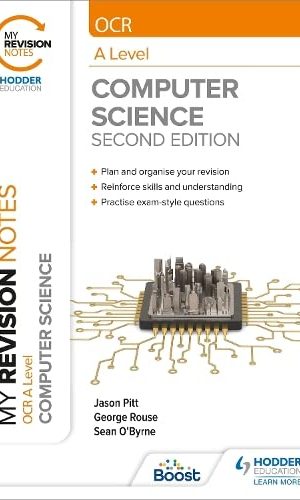

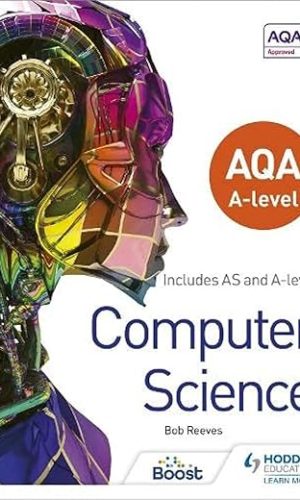

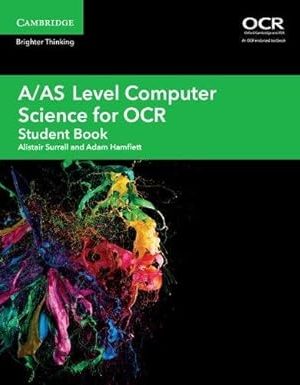
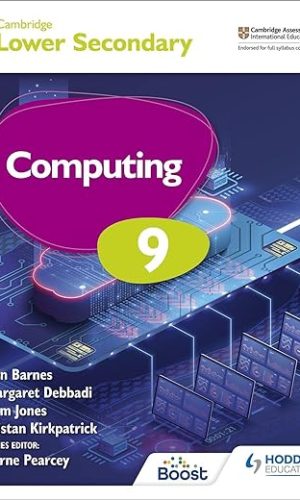

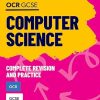
by Jaywalker
This book is a comprehensive resource for computer science students, covering 35 areas of the subject. Each area is divided into three sections: knowledge, retrieval, and practice. The book is well-organized, with colored sections that make it easy to navigate and work through.
In the knowledge section, you’ll find essential information about each topic. The retrieval section helps reinforce your learning by providing questions to test your understanding. While the practice section only includes three questions, the book provides a QR code that allows you to access a previous exam paper for additional practice.
One notable feature of this book is the questions and answers section at the end of each chapter. It ensures that you’re retaining the information from the previous chapter, helping you reinforce your knowledge.
Would be good to see more embedding of knowledge skills and behaviours of these roles at this stage.
Overall, this book is a valuable resource for computer science students looking to review and test their knowledge in various areas of the subject.
by James Joyce
Well written and easy to read.
by Review Hive
The book is split into 35 areas of computer science and each area is split into 3 sections knowledge, retrieval and practice. Sections are coloured and and so its easy to work through the book. While the practice section only includes 3 questions the book has a QR code to access a previous exam paper to get additional practice in. And each section has a section of questions and answers based on the previous chapter making sure you are retaining the information previously covered.
by JANET ROSE
The pedagogic model of this revision guide is Knowledge-Retrieval-Practice, with a tendency to drill-learning and regurgitation rather than deep learning and understanding. So for example students are told to [l]earn the answers to the questions below, then cover the answers column with a piece of paper and write down as many answers as you can”. Maybe this will get exam results, but industry needs and values understanding more than good grades.
Programming is the most useful part of Computer Science, and the coverage of programming in this revision guide is a little slapdash. When it comes to choosing names for identifiers, brevity is emphasised rather than readability. It also states that “identifiers must be single words, with no spaces”, which is ambiguous: identifiers will often consist of more than one word, the rule is that the words shouldn’t be separated by spaces. The book uses underscores (snake_case) to separate component words rather than the (more readable) camelCase used in the OCR’s own Specification.
Programming involves teams of people and code has to be readable if it is to be maintained. The book says that identifiers should be chosen to “remind YOU” of the value stored or the functionality performed – they should be chosen to make sense to OTHERS (my emphases), not as a private mnemonic. There is a very brief panel on Readability on page 150 which acknowledges this and points back to the ambiguous remarks about single words along with sections on structure.
The OCR Specification includes Comments under Defensive Design > Maintainability, but the coverage of comments (on page 151) is poor, with no indication of when to use comments and when not to (the example given merely repeats something that’s entirely explicit in the code).
The book would benefit from an index.
by Jimmy C
The media could not be loaded.
This is a video review – far better for me to show you what I’m talking about as I explain rather than just write about it without giving you appropriate context.
The book itself is really well designed and takes the pupil through the three stages of knowledge (using knowledge organisers), retrieval and finally exam-style practice. Each chapter builds on the chapter before and gives the pupil just a little reminder through past questions to keep their knowledge ticking over.
Very much a little-and-often book. Don’t wait until a week before the exam to buy this, you won’t get the full benefit. Ten minutes or so on each chapter frequently throughout the GCSE course (usually Years 10 and 11) is the way to approach this and this book does an excellent job of compartmentalising that for you.
by JANET ROSE
The media could not be loaded.
Oxford books have always been one of my go to for revision books.
This one is just as good as others I have used. It is easy to understand and split into bite size (no pun intended!) sections to help with revision / practice / exam tips.
It is a pleasure to read as it is printed in pastel coloured sections.
This one is for the OCR exam board and the Computer Science GCSE.
Recommended.